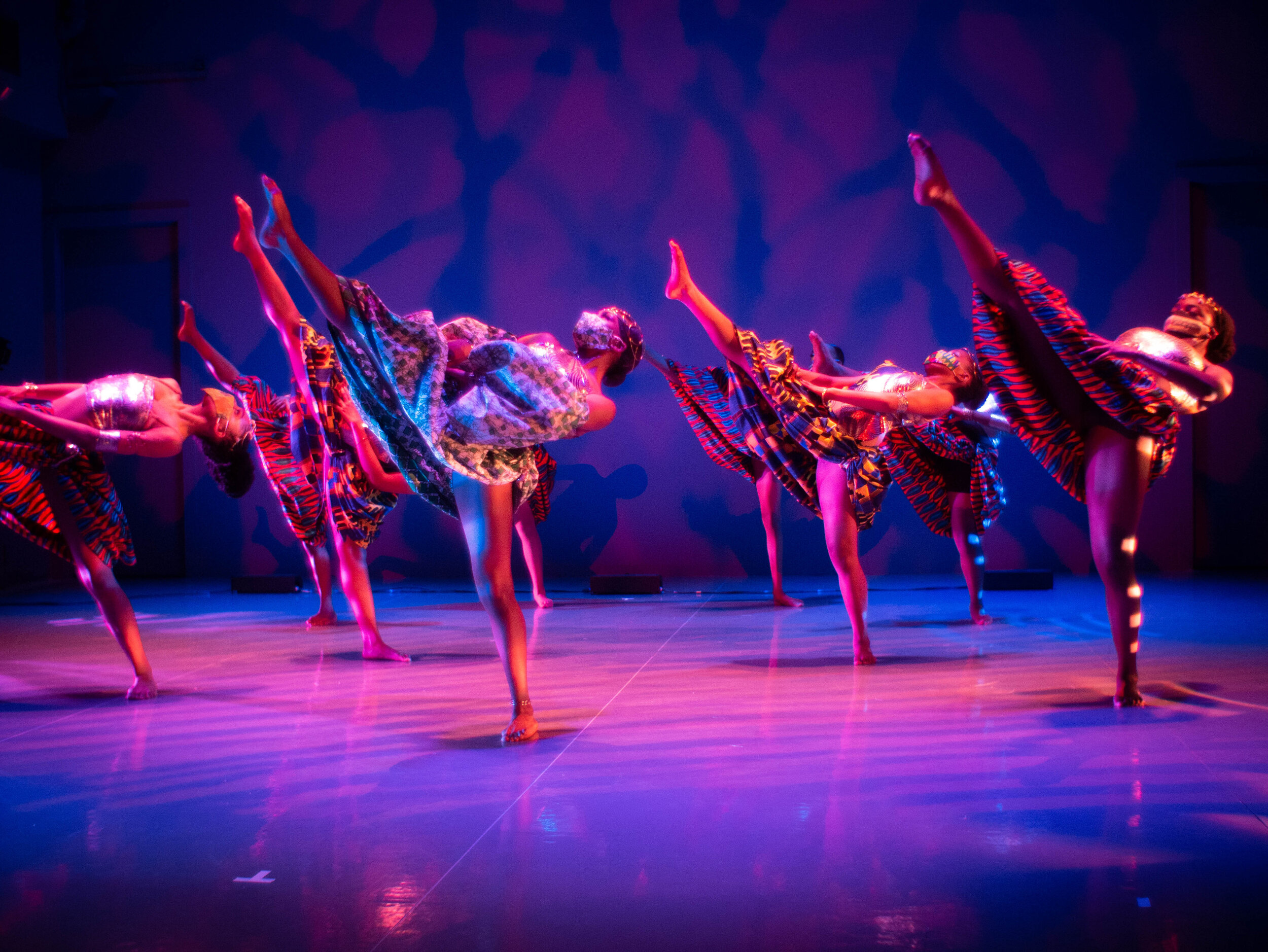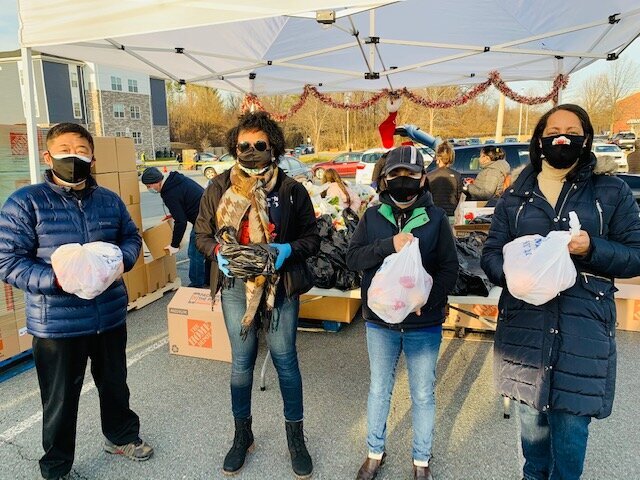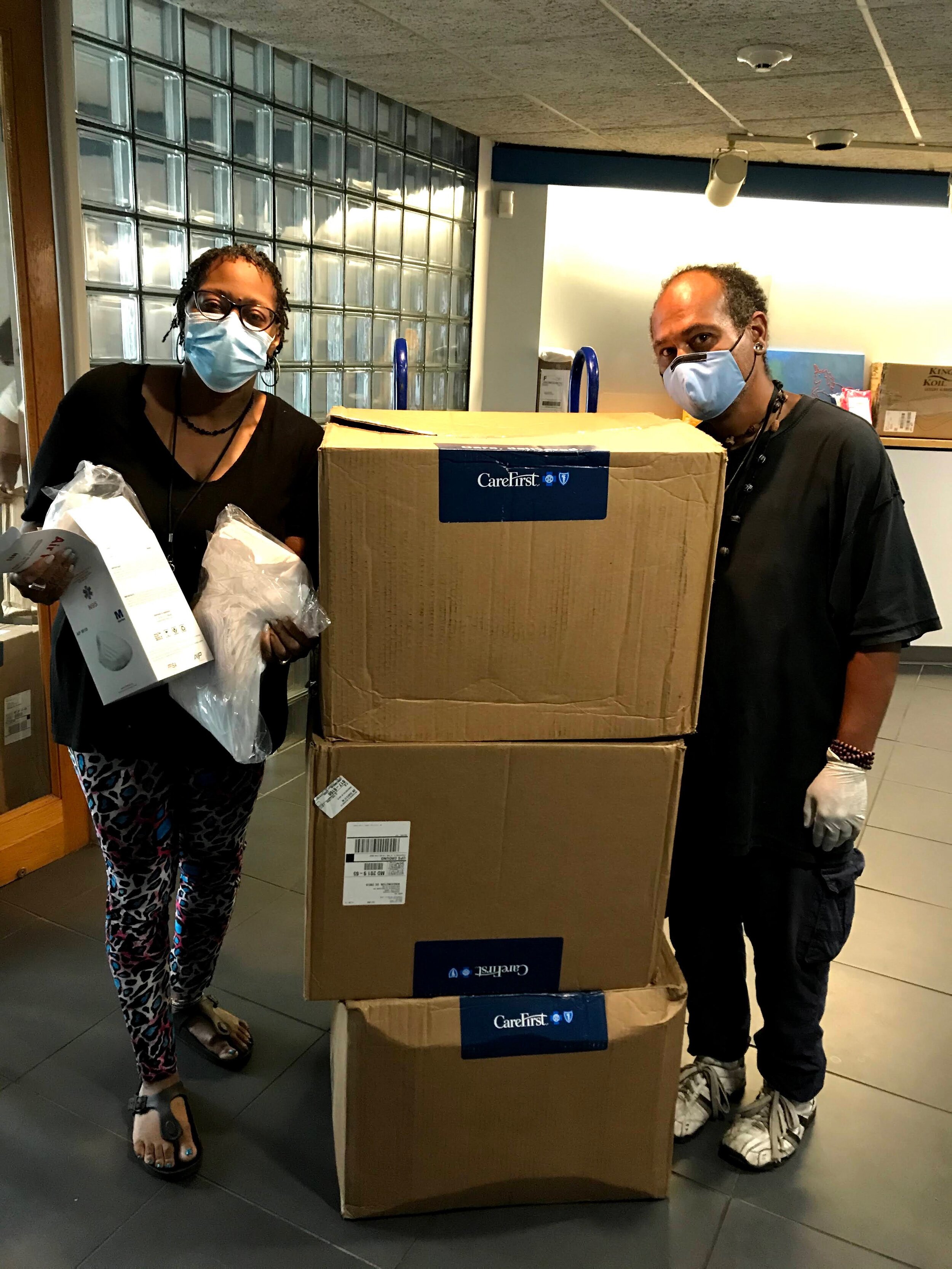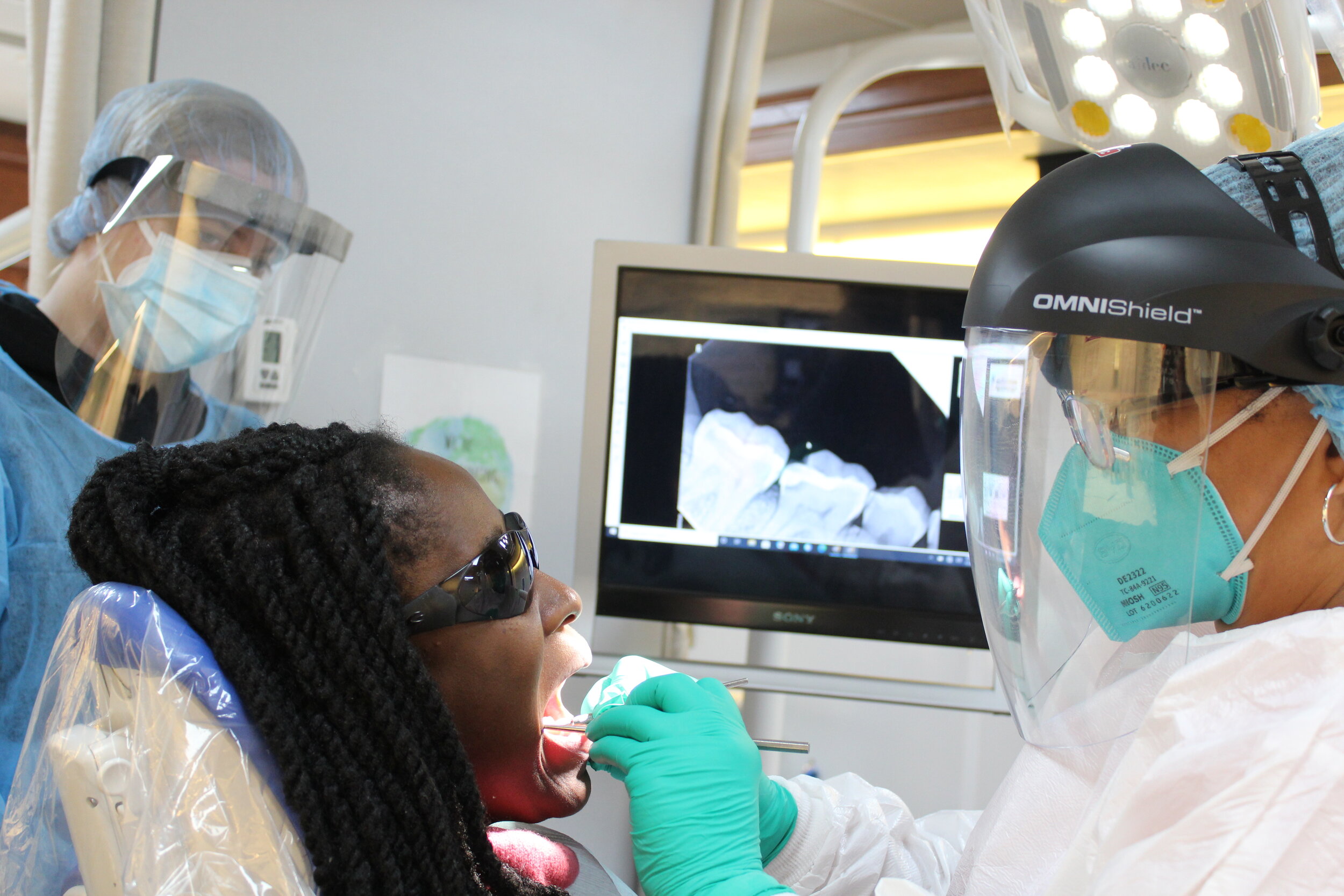Now that 2021 is over, we’re reflecting on and celebrating our most impactful stories from the past year – from releasing our new strategic vision, to historic investments in Black-led change, to a $1 million gift from philanthropist MacKenzie Scott that boosted our recovery work for local arts groups. Here are some of our most meaningful milestones from 2021.
Together, We Prosper: Launching a New Strategic Vision for Closing Our Community’s Racial Wealth Gap
In October, we shared the culmination of months of deep heart work: our 10-year strategic vision to close our region’s racial wealth gap. First unveiled at our annual meeting, the vision centers on three core leadership pillars: leading with racial equity and inclusion, aligning business with values, and closing the racial wealth gap. We envision a future where all have the opportunity to prosper – and know together, we can realize this vision as reality.
Celebrating Our Community’s Champions
View a recording of our Celebration of Community Champions program.
In May, our virtual Celebration of Community Champions lifted up our collective COVID-19 response efforts and the everyday heroes – local individuals and companies – who stepped up for our region in exceptional ways. We were proud to highlight Feed the Fight as our Community Hero; Food for Montgomery as our Collaborative Hero; CareFirst BlueCross BlueShield as our Corporate Hero; and Dr. Monica Goldson, Senator Thomas V. Mike Miller, Jr. (in memoriam), Steve Proctor, and Dr. Alvin Thornton as our Civic Heroes. The evening also featured special performances from Arts on the Block, DC Jazz Festival, the Prince George’s County Youth Poet Laureate, and Synetic Theater.
Historic Investments in Black Leaders and Black-Led Nonprofits
We were proud to make several historic investments in Black-led change impacting our region. Through our Black Voices for Black Justice Fellows, an initiative launched in 2020 with Bridge Alliance Education Fund and GOODProjects, we selected 10 inspiring Black leaders and activists on the frontlines of advancing racial equity and social justice. Additionally, a generous gift from Facebook enabled investments of nearly $1 million in 17 Black-led organizations leading systems change work. These awards supported the immediate infrastructure needs of grantees, including staffing, strategic planning, marketing and communications, professional development, and more.
Direct Cash Transfer as a Vehicle for Speed, Inclusivity, and Equity
During the COVID-19 pandemic, The Community Foundation and many of our philanthropic partners embraced giving directly—transferring cash to people—as an effective and efficient means of providing relief to those hit hard by the sudden economic and health emergency. Since the onset of the pandemic and in partnership with donors, nonprofit organizations, and local government agencies, we facilitated the administration of approximately $26 million in funds, distributed in increments of $50 to $2,500 to approximately 60,000 residents across the Greater Washington region. Urban Institute published a report chronicling the goals, strategies, and short-term achievements of our effort to develop and implement cash transfer strategies at the height of the pandemic.
Advancing Housing Justice and Preventing Evictions
Our Partnership to End Homelessness continued its critical eviction prevention work in response to the pandemic and economic crisis. Its work to advance housing justice included more than $300,000 in grants to address our region’s housing crisis and inequalities by funding seven nonprofits leading advocacy and organizing efforts. Hear from our Community Investment Officer Jennifer Olney on the Partnership’s eviction prevention work and her explanation of common misperceptions about homelessness – and how you can get involved in helping more people obtain and maintain stable housing during a crisis and beyond.
Improving Equity and Economic Mobility in Prince George’s County
Jacob’s Ladder was selected by ELIF members to receive a microgrant for its Academic Enrichment Program that provides tutoring, basic literacy skills, and mentoring to students.
Our Emerging Leaders Impact Fund (ELIF), a new giving circle for young professionals in Prince George’s County, announced its inaugural grants to five Prince George’s County nonprofits working to combat chronic absenteeism in County schools. ELIF is currently recruiting new members for 2022; Interested candidates can apply here. While our Equity Fund, which works to eliminate social and economic disparities in Prince George’s County, awarded $440,000 in grants to help 19 nonprofits advance food security, affordable childcare, and workforce equity. These grants were made possible thanks to a generous gift from the Ikea U.S. Community Foundation.
Increasing Food Security and Educational Equity in Montgomery County
Food for Montgomery received our Collaborative Hero Award for its public-private effort to coordinate and expand food distributions, support local farmers and small businesses, and improve food systems to combat food insecurity in Montgomery County.
Our Children’s Opportunity Fund was recognized by the Campaign for Grade-Level Reading as a 2021 Bright Spot community for its COVID-19 response work, including the launch of Educational Enrichment and Equity Hubs. Equity Hubs offered a safe place for low-income students to participate in remote learning during school closures, welcoming more than 1,400 students across 70 sites. Our Food for Montgomery initiative has marshaled the resources of nonprofits, faith communities, local businesses, farmers, and county agencies to increase food access and help families recover from crisis. It has raised and deployed over $2.1 million to double the number of food distribution sites, help sustain local farmers and small businesses, and improve the hunger relief system to meet today’s challenges and future crises.
Gift From Mackenzie Scott Enables Additional Relief Funding For Local Arts Groups
Dance Institute of Washington received a grant to support its facility renovation and a program evaluation with a focus on racial equity.
Arts Forward Fund was established in partnership with The Morris & Gwendolyn Cafritz Foundation to help struggling arts and culture organizations to adapt their programming to survive and recover from the devastating effects of the pandemic. In 2021, the initiative was recognized by philanthropist MacKenzie Scott with a $1 million gift as part of a cohort of equity-focused efforts. Thanks to Scott’s generosity, we were able to award a second round of grants in September 2021, investing in nearly 90 local arts groups. In total, the fund has made nearly $2.7 million in grants to 130+ organizations – 60% of which are BIPOC-led or BIPOC-serving.
Turning Ideas Into Action for Community Change
Learn about several of our Community Action Awards supported projects in this video produced by our partners at Comcast.
As the last step in our three-part VoicesDMV community engagement initiative, we awarded our inaugural Community Action Awards microgrants to 50 local activists, artists, and advocates leading neighborhood-based projects which advance equity and inclusion. Projects included public murals in Brookland, Forest Bathing in Maryland, yoga and dance accessibility, and more. In December, our former Senior Advisor for Impact Benton Murphy reported back how grantees are doing – and the collective impact of these projects - read his post for several inspiring videos and photos.
Aligning Our Business With Our Values: A New Partnership With SEI
Check out this video featuring our OCIO providing an update on your investment options and their performance.
We believe to truly affect change, our values must inform and drive our actions – and this was the impetus for partnering with SEI as our outsourced chief investment officer (OCIO). The leading global investment firm is known for its focus on diversity, equity, and inclusion, values we wholeheartedly share. As an OCIO with 450+ clients worldwide – more than 170 of which are nonprofits – SEI serves as an extension of our staff, providing world-class investment expertise and constant focus on managing the charitable funds you have entrusted to us. Check out this new video featuring our OCIO providing an update on your investment options and the performance of our investment portfolio.
In Memoriam: Diane Bernstein, Jane Bainum, Milt Peterson, Senator Mike Miller, Waldon and Rhonda
As a member of our Partnership to End Homelessness Leadership Council, Waldon Adams was instrumental in our work to ensure everyone has housing they can afford.
Last year, we lost several special members of The Community Foundation family. We pay tribute to former Trustee, donor, and friend Diane Bernstein; Jane Bainum, co-founder of the Bainum Family Foundation and longtime philanthropic partner; Milt Peterson, trusted donor and founder of Peterson Companies; and the beloved Senator Mike Miller, one of our 2021 Civic Hero honorees. We also remember and honor our friends Rhonda Whitaker and Waldon Adams, two tireless advocates for ending homelessness who passed away unexpectedly in April.
From Crisis to Recovery: A Pivotal Year
You can also view our FY 2021 annual report for more highlights from our crisis to recovery work in 2020-2021.

























